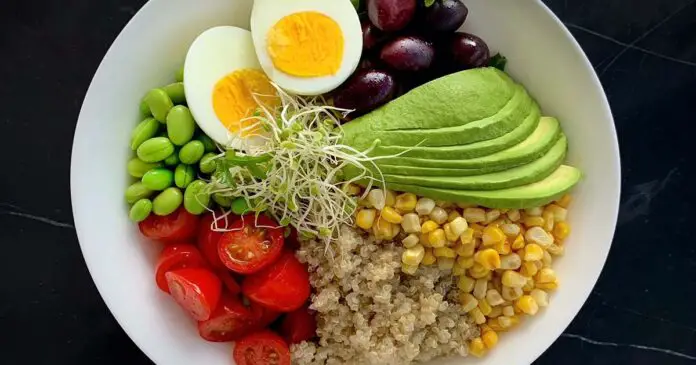Looking to up your protein intake but not really a fan of meat? You’re in luck! We’ve rounded up 12 high protein foods that don’t include meat.
From beans and legumes to Greek yogurt and quinoa, these options are not only delicious but also packed with nutrients.
So, if you’re ready to explore new protein sources, take a look at our list and discover a whole new world of meat-free protein power!
Check out also: 10 Best Accessories, Gadgets & Gifts For An Air Fryer Owner
This web portal is supported by its readers, and is a part of the Amazon Services LLC Associates Program and the eBay Partner Network. When you buy using links on our site, we may earn an affiliate commission!
1. Beans and Legumes
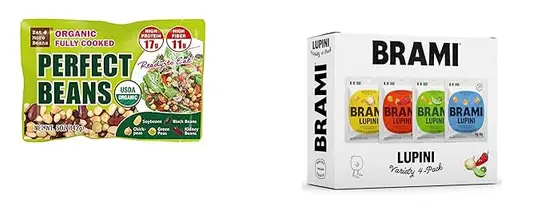
If you’re looking to increase your protein intake without eating meat, beans and legumes are a great option. They aren’t only rich in protein but also packed with essential nutrients. They are pretty versatile and can be used in a variety of dishes, making it easy to include them in your diet.
For example, you can add black beans to salads, make a hearty lentil soup, or enjoy a chickpea curry. These plant-based proteins are also high in fiber, which can help with digestion and keep you feeling full for longer. Additionally, both beans and legumes are a good source of iron, folate, and potassium, making them a nutritious choice for vegetarians and vegans.
2. Greek Yogurt
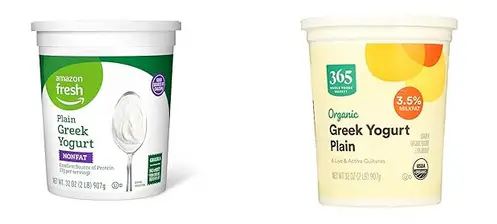
Try adding some Greek yogurt to your diet for a delicious and protein-packed option. Greek yogurt can be enjoyed in many different ways. Whether you have it for breakfast, as a snack, as a base for sauces and dressings or by itself, Greek yogurt is a great addition to your meals.
One of the main benefits of Greek yogurt is its high protein content. With around 17-20 grams of protein per serving, it can help you meet your daily protein needs. Greek yogurt is also a good source of calcium, probiotics, and vitamin B12. It’s a filling and satisfying option that can help keep you energized throughout the day.
3. Quinoa
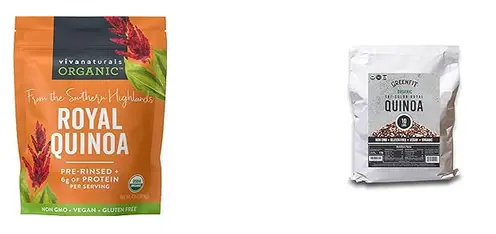
To add a high protein option to your diet, you can try out quinoa!
Quinoa is a grain that isn’t only packed with protein but also contains all nine essential amino acids. With about 8 grams of protein per cup, quinoa is a great alternative for those looking to reduce their meat consumption while still meeting their protein needs.
Quinoa is gluten-free and rich in fiber, making it a nutritious choice for individuals with dietary restrictions or those looking to improve their digestion.
Quinoa can be cooked and used in various dishes, such as salads, stir-fries, or even as a substitute for rice.
4. Lentils
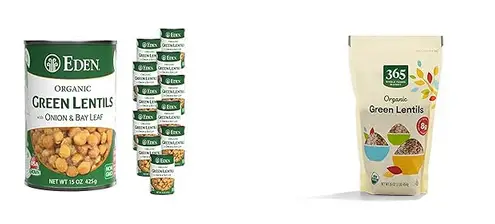
Looking to boost your protein intake without eating meat? Consider incorporating lentils into your meals. Lentils are a fantastic plant-based source of protein, making them an excellent choice for vegetarians and vegans. Not only are they packed with protein, but they’re also rich in fiber, iron, and folate.
Lentils come in various colors, including brown, green, and red, each with its own unique flavor and texture. They’re incredibly versatile and can be used in a wide range of dishes, such as soups, stews, salads, and even burgers. Lentils are also budget-friendly and easy to cook, making them a convenient choice for anyone looking to add more protein to their diet.
5. Chia Seeds
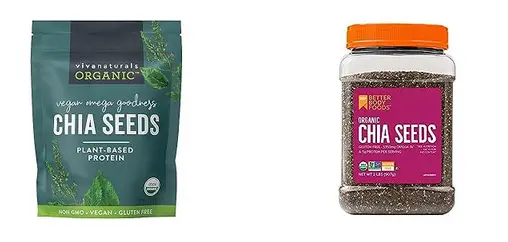
Chia seeds offer a great plant-based source of protein for boosting your protein intake without consuming meat. These tiny black seeds are packed with essential nutrients and deliver a significant amount of protein. Just a one-ounce serving of chia seeds contains about 4 grams of protein, making it an excellent option for vegetarians and vegans.
Additionally, chia seeds are rich in omega-3 fatty acids, fiber, and antioxidants, which provide numerous health benefits. You can easily incorporate chia seeds into your diet by adding them to smoothies, yogurt, or oatmeal. They can also be used as an egg substitute in baking recipes.
With their unique taste and nutritional value, chia seeds are a fantastic choice for those looking to increase their protein intake while avoiding meat.
6. Tofu
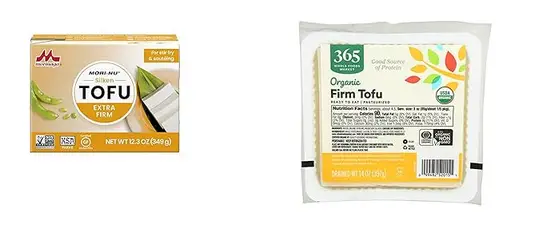
If you’re seeking a high protein alternative to meat, consider trying tofu. Tofu which is made from soybeans, is an excellent source of plant-based protein. It’s low in calories and contains all essential amino acids, making it a complete protein.
Tofu is also rich in iron, calcium, and magnesium, which are important for maintaining strong bones and muscles.
Tofu can actually be used in a variety of dishes. You can grill it, stir-fry it, or even blend it into smoothies for a protein boost.
Whether you’re vegetarian, vegan, or simply looking to reduce your meat consumption, tofu is a nutritious and delicious option to consider.
You might also like: Delicious Burgers With No Lettuce And No Pickles – Our Secret Recipe!
7. Edamame
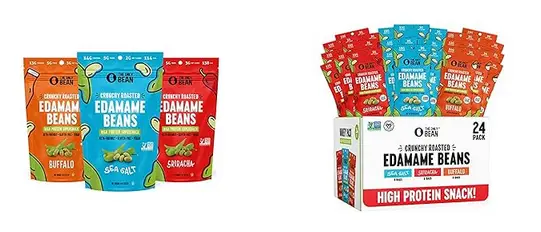
To add another high protein option to your diet, try edamame, which are young soybeans, into your meals. Edamame is a popular and nutritious food that can be enjoyed in various ways.
These green pods are packed with protein, fiber, and essential nutrients, making them an excellent choice for vegetarians and vegans. You can easily find frozen edamame in most grocery stores, and they’re incredibly easy to prepare. Simply boil or steam them for a few minutes, and they’re ready to eat.
Edamame can be enjoyed as a snack on its own, added to salads, stir-fries, or even blended into dips and spreads. With edamame, you can increase your protein intake without relying solely on meat.
8. Hemp Seeds
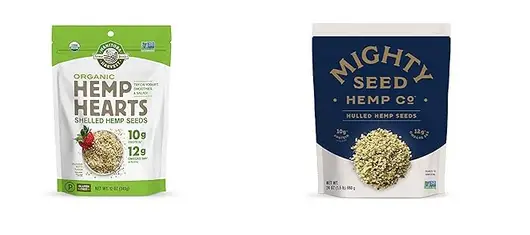
You can try out hemp seeds as another high protein option that isn’t meat. Hemp seeds are a great plant-based source of protein, containing all nine essential amino acids. Just three tablespoons of hemp seeds provide around 10 grams of protein.
They’re also rich in healthy fats, including omega-3 and omega-6 fatty acids, which are important for brain health and reducing inflammation. Hemp seeds can be added to a variety of dishes. Sprinkle them on top of salads, blend them into smoothies, or use them in baking recipes. They’ve a mild, nutty flavor that complements many different flavors.
9. Cottage Cheese

To incorporate cottage cheese into your high protein diet, try adding it to your meals or snacks as a tasty and nutritious option. Cottage cheese is a tasty and protein-packed food that can be enjoyed in a variety of ways.
You can spread it on whole grain toast and top it with fresh fruit for a satisfying breakfast. Alternatively, you can mix it with herbs and spices to create a flavorful dip for your vegetables. Cottage cheese can also be used as a substitute for higher fat ingredients in recipes, such as mayonnaise or sour cream.
With its high protein content and low calorie count, cottage cheese is a great addition to any diet for those looking to increase their protein intake.
10. Chickpeas
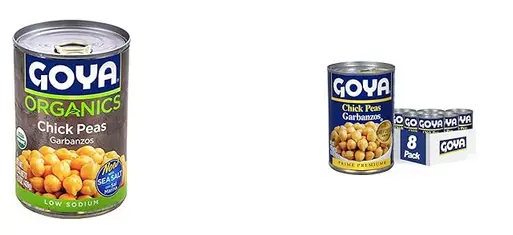
One option for adding chickpeas into your high protein diet is by including them in your meals or snacks as a nutritious ingredient.
Chickpeas, also known as garbanzo beans, pack a powerful punch when it comes to protein content. With approximately 15 grams of protein per cup, chickpeas are a great option for vegetarians and vegans looking to meet their protein needs.
Not only are chickpeas high in protein, but they’re also rich in fiber, vitamins, and minerals.
You can enjoy chickpeas in a variety of ways, such as roasted and seasoned as a crunchy snack, pureed into a creamy hummus, or added to salads, soups, and stews for an extra boost of protein and texture.
Get creative and experiment with new chickpea recipes to add a delicious and nutritious twist to your meals.
11. Almonds
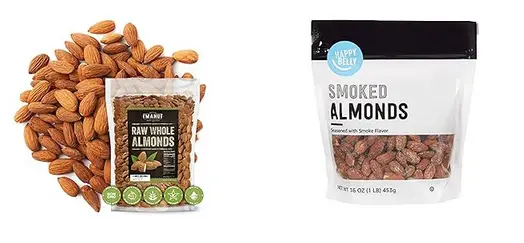
Almonds are a great high protein food option, with approximately 6 grams of protein per ounce. They aren’t only delicious but also packed with essential nutrients. Adding almonds to your diet can be a great way to increase your protein intake, especially if you’re looking for non-meat sources.
Almonds are a convenient snack that you can easily carry with you wherever you go. They’re also a fantastic addition to various dishes, such as salads and baked goods.
Moreover, almonds are an excellent source of healthy fats, fiber, vitamin E, magnesium, and antioxidants. Incorporating almonds into your meals can provide you with both satiety and nourishment, making them an excellent choice!
12. Peanut Butter
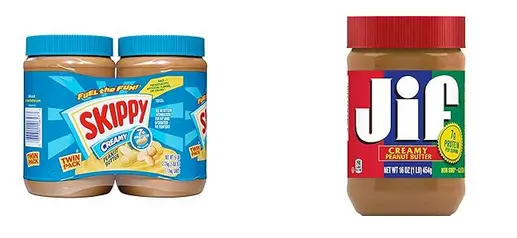
If you’re looking for a high protein food that isn’t meat, consider adding your plain old peanut butter to your diet. Peanut butter is a delicious and nutritious spread that’s rich in protein, making it an excellent choice for vegetarians or anyone looking to increase their protein intake.
Just two tablespoons of peanut butter contain about 8 grams of protein, which is equivalent to the protein found in a glass of milk or a large egg. Not only is peanut butter a great source of protein, but it also provides essential vitamins and minerals, such as vitamin E, magnesium, and potassium.
Check out also: 12 Best Healthy Fruits To Eat For Breakfast – Our Top Choices!
Main article photo: mk. s


